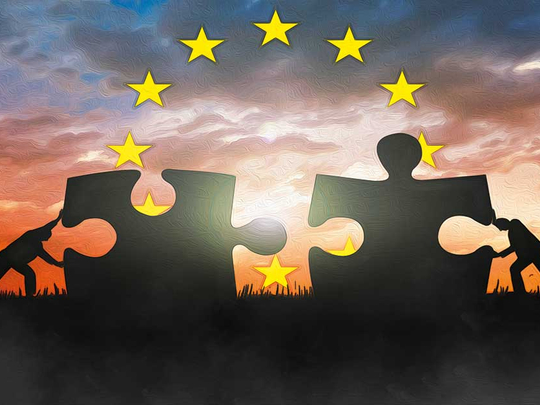
Debates over immigration are fraught with misconceptions. One of the most common is that the integration of Muslims into societies in Western Europe has gone very badly, in large part because terror attacks loom so large in the news. Those attacks are a very real problem. Yet, they do not reflect the typical reality. A new study from the Bertelsmann Stiftung in Germany shows that Muslim integration in Europe is in fact proceeding at a reasonable pace.
The survey included more than 1,000 Muslims in Germany and about 500 in Austria, France, Switzerland and the United Kingdom (both immigrants and children of immigrants were included, though not recent refugees). Although this is hardly the first study of its kind, the results offer considerable hope for societies facing integration challenges: The stereotype of an uneducated, unemployed, easily radicalised Muslim migrant does not fit the facts.
The first sign of integration is language skill. About three-quarters of the Muslims born in Germany report German as their first language; 46 per cent of foreign-born Muslims do. Overall, language skills improve with each generation, and migrants seem to be resourceful in finding ways to learn an adopted country’s tongue. Muslim immigrants to France and the UK often arrive knowing the languages of their new countries.
Only about one in 10 French Muslims report leaving school before the age of 17; the American high school graduation rate for all attendees is lower, at 83 per cent. In Germany, employment for Muslim immigrants is on a par with employment for non-Muslims, though Muslim wages are lower. The rate of unemployment for French Muslims is a disappointing 14 per cent, but that looks less troubling when you consider that migrants are relatively young and French youth unemployment as a whole is about 25 per cent. Labour market reforms and better economies can help integrate foreign migrants, and Europe is currently showing decent economic growth, again reasons for hope.
Nor do Muslims huddle in Muslim-only communities, apart from the broader population. Some 87 per cent of Swiss Muslims report having frequent or very frequent social contact with non-Muslims. In both Germany and France that number is 78 per cent, again a sign of assimilation. It is lower in the UK (68 per cent) and Austria (62 per cent), but even those figures show plenty of social intermingling. And migrants across countries report feeling a close connection to the countries they live in, from a high of 98 per cent (Switzerland) to a low of 88 per cent (Austria).
By no means is religion always a dominant influence on Muslims in Western Europe. The UK is the only country of the five where a majority of Muslims report staying highly religious after their migrations. Only 26 per cent of Swiss Muslims report being highly religious, barely above the 23 per cent of Swiss residents as a whole who count themselves to be highly religious. A majority of Swiss Muslims are from southeastern Europe, which perhaps eases their integration compared with those from Turkish, North African or South Asian backgrounds. That suggests that insofar as integration is a problem, cultural distance may matter more than religion.
It’s also too simplistic to say that the terrorist threat reflects a failure to integrate Muslims. Integration is going relatively well in France, even though the country has had a number of high-profile Muslim-related terror attacks. Austria arguably does worse in making Muslim immigrants feel at home, yet terror attacks in Austria are not currently a significant phenomenon, suggesting that violence can give a misleading picture of aggregate progress. Furthermore, keep in mind that Europe during the 1970s had a higher rate of mostly homegrown violent terrorism than it does today from Muslims.
The path to integration may give some migrants more resources or higher expectations, with many good results, but also with catastrophic consequences in some extreme cases. (It is often noted that many American shooters behind mass killings are native-born whites.) That may help explain why many Western Europeans aren’t convinced that successful integration is possible.
The study also suggests that integration works better when the migrants are relatively numerous, perhaps because they can create mutual support services. But making that point is unlikely to win many European elections.
Much integration remains to be done, as German Chancellor Angela Merkel acknowledged during last week’s campaign debate, but there is no road back. The good news is that Western European integration of Muslims is further along than many people believe. The bad news is that the process of integration entails significant social change and change sometimes brings turmoil. The human race is improving at this broader challenge only slowly.
— Bloomberg
Tyler Cowen is a Bloomberg View columnist.










